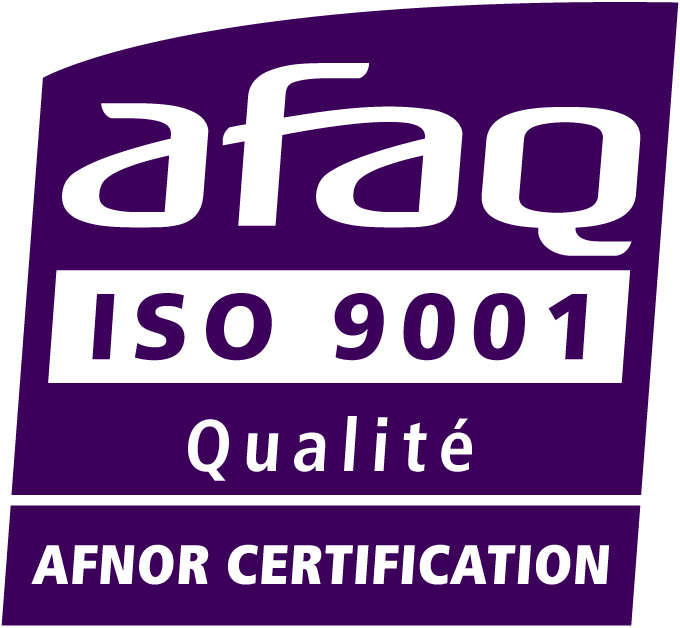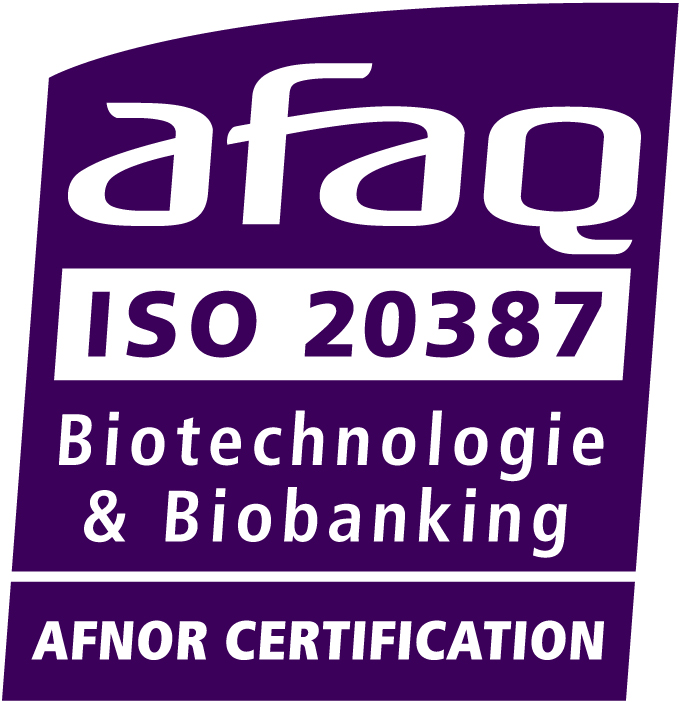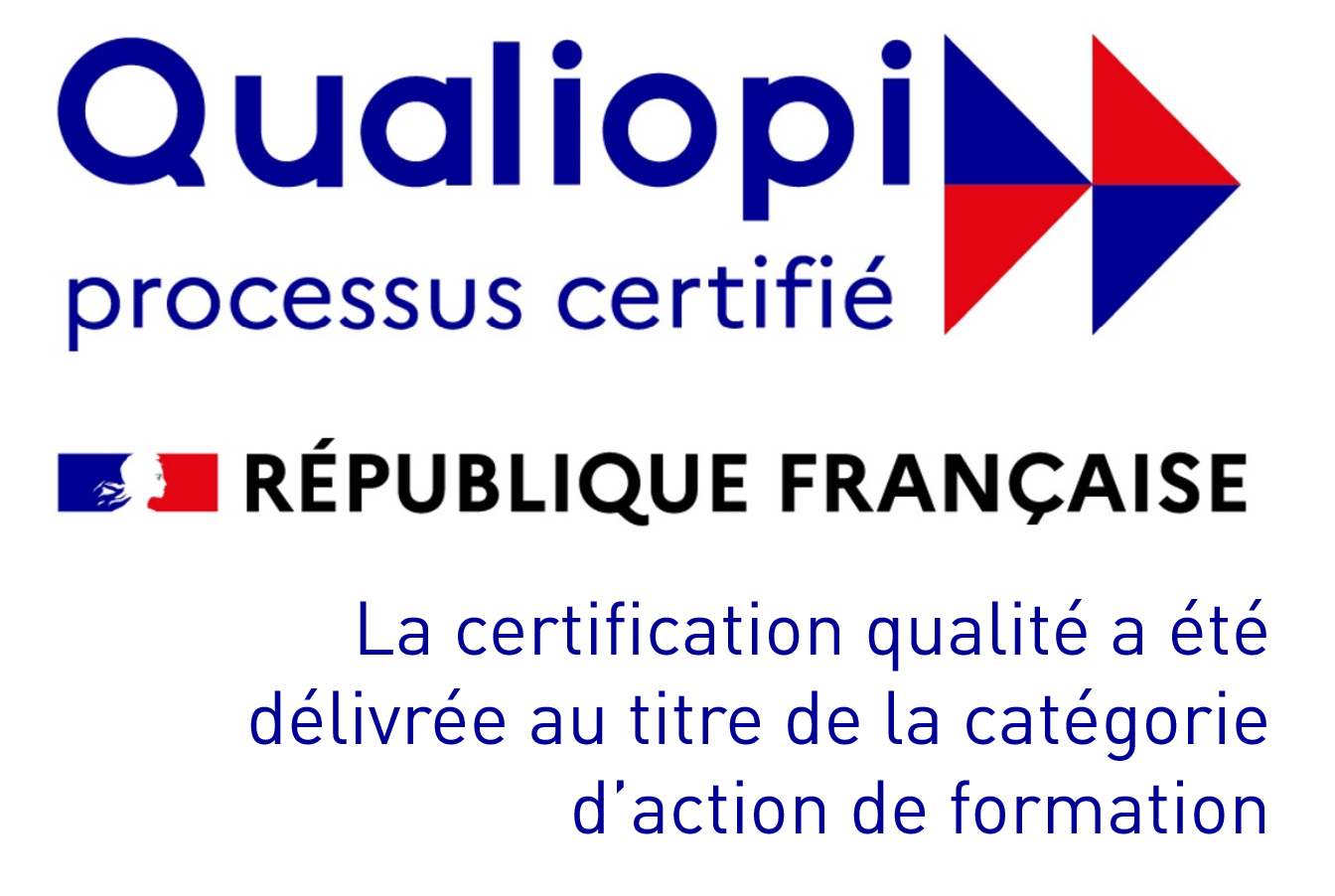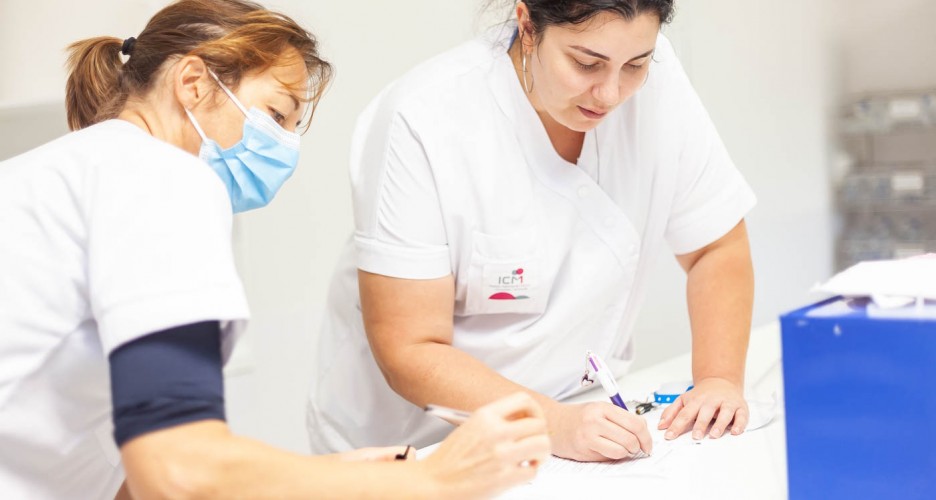The ICM teams are vigilant about the quality and safety of patient care.
Political quality
It is in this spirit that the ICM's quality approach was initiated in 1996, with the oncology labeling of the Centers for the Fight against Cancer. It is now integrated into the Establishment Project and results in concrete actions at all levels of the establishment. The program to improve the quality of healthcare safety is structured around 4 axes:
- Optimize the patient journey by strengthening coordination and organizational innovation (early integration of supportive care, patient resources, integrated research),
- Ensure the safety of patients and staff through continuous training and evaluation of professional practices,
- Prevent the infectious risks associated with healthcare,
- Develop a Corporate Social Responsibility policy: quality of life at work, development.
"The safety of care is a growing and legitimate requirement of all healthcare users and for all patients". High Authority of Health
Un établissement certifié
La qualité des soins et la sécurité des patients sont des priorités pour l’ICM. Des démarches de certifications sont menées à tous les niveaux de l’établissement grâce à l’implication de chacun des professionnels. Elles permettent à l’ICM de maintenir une haute qualité des soins délivrés aux patients et sécuriser les prises en charge.
À l'échelle de l'établissement
Certification par la Haute Autorité de Santé (HAS)
L’ICM fait partie des établissements certifiés par la Haute Autorité de Santé (HAS).
Désignation en tant que Comprehensive Cancer Center par l’OECI
L’Institut du Cancer de Montpellier a obtenu l’accréditation officielle de Comprehensive Cancer Center européen, délivrée par l’OECI – Organisation of European Cancer Institutes en décembre 2025, pour une durée de cinq ans.
Cette reconnaissance majeure à l’échelle européenne vient saluer l’excellence globale de l’ICM dans l’ensemble de ses missions ainsi que la qualité de l’organisation et de la coordination des parcours des patients. Elle positionne l’Institut parmi un cercle restreint de centres de référence en cancérologie en Europe.
Cette accréditation est avant tout le fruit d’un engagement collectif exemplaire. Elle témoigne du professionnalisme, de l’exigence et de l’implication quotidienne de l’ensemble des équipes médicales, soignantes, scientifiques, techniques, administratives et supports de l’Institut.
Spécifiquement pour certains secteurs
Inspections par l'Autorité de Sûreté Nucléaire et de Radioprotection (ASNR)
Les secteurs médico-techniques comme la médecine nucléaire, l'imagerie médicale et la radiothérapie sont régulièrement soumis à l’inspection de l’Autorité de Sûreté Nucléaire et de Radioprotection (ASNR) afin de sécuriser les pratiques et la qualité des prises en charge.
Norme ISO 9001 de la Recherche Clinique et Translationnelle
Les Unités de Recherche Clinique et Translationnelle (incluant l’unité de Biométrie et le CRB) sont certifiées ISO9001 v15.
Cette certification par l’AFNOR initiée en 2017, est renouvelée tous les 3 ans avec des visites de surveillances annuelles.
Internationalement reconnue, la norme ISO 9001 permet de garantir à tous, patients, médecins et partenaires, un haut niveau de qualité et de sécurité dans la gestion des projets de recherche.

Norme ISO 20387 du Centre de Ressources Biologiques (CRB)
Le CRB est certifié pour ses activités de biobanking par AFNOR Certification, initialement en 2014 selon la NF S 96-900, puis depuis 2023 selon la norme ISO 20387. Le CRB a pour vocation la constitution de collections de ressources biologiques humaines qualitatives et annotées, dans le respect de la législation et des règles éthiques.
Après validation par le comité scientifique, les collections peuvent être mises à la disposition des chercheurs de l'ICM mais également des équipes de recherche publiques et privées nationales et internationales.

Certification Qualiopi de l’École du Cancer de Montpellier
La certification Qualiopi met en exergue l'expertise des formateurs experts et spécialisés qui effectuent au quotidien un travail de terrain et suivent de près les pratiques innovantes. Elle pointe également un souci constant de suivi des indicateurs qualité et une démarche active d'amélioration continue.
"Cette certification met en lumière l'organisation de l'équipe, la procédure mise en place ainsi qu'une bonne adaptation aux besoins des bénéficiaires" précise le Pr Céline Bourgier, directrice de l'Ecole du Cancer.

Quality and safety indicators of care
The ICM uses indicators developed by the HAS to measure the level of quality and safety of care. The establishment publishes the results of these indicators to inform you about the quality of your care at the ICM.
Health vigilance: a preventive watch in the use of health products
Health vigilance makes it possible to reduce and prevent the risks associated with the use of health products by implementing corrective or preventive actions. The ICM is organized to ensure preventive monitoring of incidents related to the use of these products.
- pharmacovigilance for drugs and raw materials for pharmaceutical use
- haemovigilance for the entire transfusion chain, from the donor's sample to the recipient's post-transfusion follow-up, of labile blood products
- materiovigilance for medical devices
- reactovigilance for in vitro diagnostic devices
- infectiovigilance to control nosocomial infections or infections associated with care
- radiation protection to reduce the risks associated with ionizing radiation used in treatment
- identity vigilance to limit the risk of errors related to patient identification.
Identifying yourself properly is to ensure your safety
We need to identify you properly because many professionals will take care of you throughout your treatment at the ICM.
In order to avoid any errors, especially in the spelling of your first and last names, we ask you to present an official piece of identification upon admission.
All patients receive an identity bracelet upon arrival at the hospital ward to ensure their identity and secure their care.
Throughout your stay, several health professionals will ask you for your name, first name, etc. It's normal.
Verifying your identity at each stage of your care is part of a mandatory protocol and is a guarantee of security. Thank you in advance for your cooperation.


